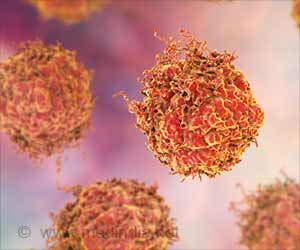Ubiquitin-specific proteases regulate key cell death pathways in breast cancer, influencing tumor progression, treatment resistance, and potential therapeutic targets.

Role of ubiquitin-specific proteases in programmed cell death of breast cancer cells
Go to source).
Balancing Cell Death and Survival in Breast Cancer Therapy Resistance
The intricate ubiquitin-proteasome system (UPS) plays a vital role in maintaining cellular homeostasis, determining the fate of apoptotic, autophagic, necroptotic, ferroptotic, and pyroptotic pathways. By selectively modulating proteins involved in these pathways, USPs contribute to either promoting or inhibiting cancer cell survival. The review explores the dual role of PCD in BC, where certain forms of cell death act as a defense mechanism, while others enhance tumor growth and resistance to therapy.‘Did You Know?
About 16% of women with breast cancer are younger than 50 years of age. #medindia #breast #cancer’





Apoptosis, the most studied form of PCD, is closely linked to tumor suppression. However, BC cells often develop resistance to apoptotic signals, enabling uncontrolled proliferation. USPs such as USP22 and USP7 regulate key proteins like c-Myc and p53, influencing apoptosis in BC. Similarly, autophagy, a mechanism for cellular self-digestion, has a paradoxical role in BC, either inhibiting or promoting tumor survival. The review discusses how USP8 and USP13 influence autophagy by regulating Beclin1 and p62/SQSTM1, potentially affecting therapeutic outcomes.About 16% of women with breast cancer are younger than 50 years of age. #medindia #breast #cancer’
Emerging Non-Apoptotic Pathways in Cancer Therapy
Emerging non-apoptotic PCD pathways such as ferroptosis and pyroptosis have garnered attention for their potential in cancer therapy. Ferroptosis, a form of iron-dependent cell death, has been identified as a promising target in triple-negative breast cancer (TNBC). The review highlights the role of USP7 and USP35 in ferroptosis regulation, underscoring the therapeutic possibilities of manipulating iron metabolism and oxidative stress. Pyroptosis, an inflammatory cell death pathway, is also examined, with a focus on USP48 and gasdermin E (GSDME), which contribute to immune responses and tumor suppression.Beyond their influence on PCD, USPs play a role in tumor metastasis and drug resistance, presenting new challenges and opportunities for targeted therapy. The review emphasizes the need for further investigation into the crosstalk between USPs and PCD mechanisms, particularly in necroptosis and anoikis, which are less understood but critical in BC progression.
By unveiling the complex interactions between ubiquitination, cell death pathways, and cancer biology, this review lays the foundation for novel therapeutic strategies.
Reference:
- Role of ubiquitin-specific proteases in programmed cell death of breast cancer cells - (https://www.sciencedirect.com/science/article/pii/S2352304224001387?via%3Dihub)
Source-Eurekalert














